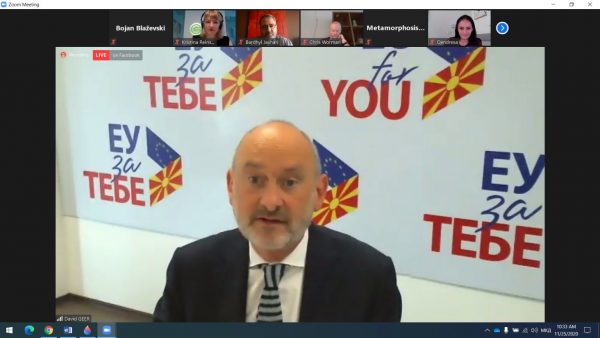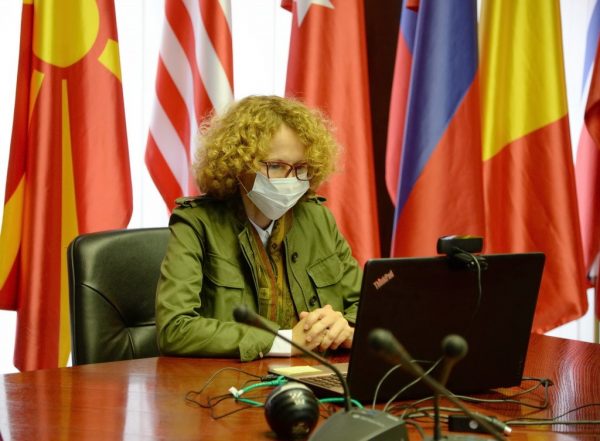The 16th edition of the international conference “E-Society.mk” with the subject of “Inclusion and Effectiveness – Good Governance and Internet” started yesterday and for the first time due to the COVID-19 pandemic it is completely organized online. The event is organized by Metamorphosis Foundation for Internet and Society. In his opening remarks, its Executive Director Bardhyl Jashari put the stress on the consequences of the COVID-19 pandemic on the digitalization of the society.
“The name of the e-Society conference now has more meaning, because this year we are forced not only to organize the conference online, but due to the pandemic we have to do many other things online. We are working, organizing meetings, trainings, webinars, conferences, the children are learning online and the E-Society is becoming reality,” Jashari said.
In his presentation at the conference, the Information Society and Administration Minister Jeton Shaqiri stressed that in the forthcoming period, the Government will be working on decreasing the digital gap.
“According to EU’s research and projections, in 2020, up to 90% of the jobs will require a certain level of digital skills,” said Shakiri.
He stressed that they shall be working on promotion of digital skills for the whole population, including the young, the old, the teachers, the administration, men, women, people living both in rural and urban areas.
“We have to make sure all the citizens will be able to use all the advantages of the new technologies,” said minister Shakiri.
Kristina Reinsalu, Programme Director for e-Democracy at the E-governance Academy, Estonia,presented the positive example of Estonia for quick and successful digital transformation of the society and the inclusion of its communities in it.
In the case of Estonia, this became reality as a result of a progressive government, proactive IT sector, but also the society itself. And Kristina Reinsalu stressed that in 1997 an implementation of a project started, that will establish computerized classrooms in the schools, access to Internet in every school, allowing free Internet for the teachers and the students, and parallel to this, free internet courses that will increase the digital literacy of the population.
The Head of the EU Delegation in Skopje, David Geer, during his presentation at the conference said that in order to gete gains from the digital revolution, a lot of things should firstly be put in their place.
“We should have infrastructure and again, draw an investment plan to help develop such infrastructure. Also, there should be a regulatory framework that will ensure that this is a fair-play area,” said Geer.
He stressed that within the education frame it is very important to understand the importance of the media literacy and the understanding of the opportunity to engage, with all the challenges that come with the digitalization. He quoted the example of the Metamorphosis Foundation, which, unfortunately, had many examples how the propagation of disinformation can be grossly abused.
At the same time, the EU Ambassador Geer stressed that one of the ways in which the EU is helping North Macedonia is the support for e-services for companies and citizens.
Chris Worman, Senior Director, Alliances and Community Engagement of TechSoup Global Network, at today’s conference stressed that technology is advancing and we should be ready to go in the same direction with the same tempo.
The Conference continued today (26.11.2020) starting at 10 am. At separate sessions, there were talks about the role of investigative journalism towards good governance, including the open digital education. According to the schedule, the day will end with an online workshop on the subject of “Security and Privacy – Key Challenges in the Digitalization of Education.” More details about the participants that will have their presentations can be found here: e-society.mk.
















